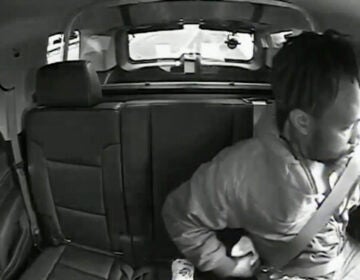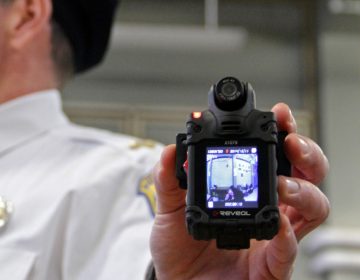All police officers in New Jersey now mandated to wear body cameras
However, not all N.J. police departments have received their cameras, as some are waiting for their orders to come in. Evidence on their effectiveness is mixed.
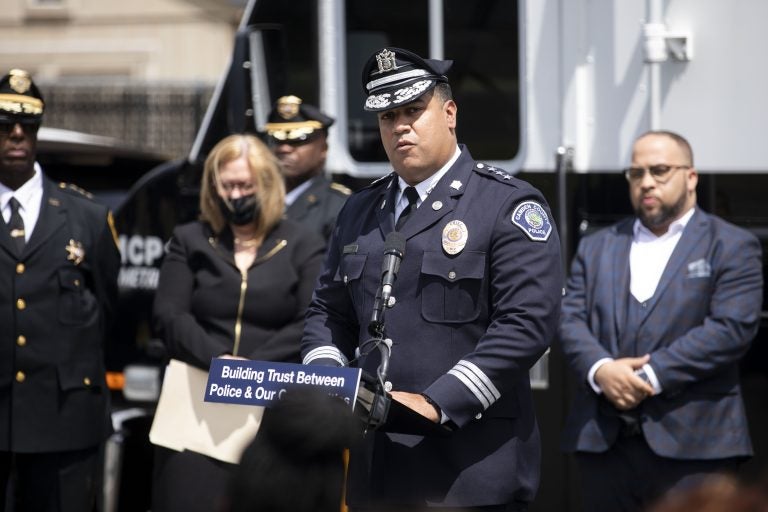
Chief Gabriel Rodriguez speaks at the Camden County Police Department in Camden, N.J. on Tuesday, June 1, 2021. Beginning today, June 1, every uniformed patrol officer in New Jersey is required to wear a body camera. (POOL Photo: Monica Herndon / The Philadelphia Inquirer)
Police departments across New Jersey are now required to outfit their police officers with body-worn cameras. The Garden State is the sixth in the country to have such a law.
Gov. Phil Murphy signed the mandate from the Assembly last November that required all officers to be outfitted with the devices by June 1, 2021.
However, not all departments have received their cameras, as some are waiting for their orders to come in.
“Not surprisingly, there has been a run on body-worn cameras nationally, if not internationally,” Murphy said.
The state appropriated $58 million to help departments buy the equipment to meet the deadline. All 487 departments that applied for grants will receive funding, officials said.
“As long as a department is acting in good faith … they were eligible for those grants,” the governor said.
To mark Tuesday’s deadline, the governor, state attorney general, and other officials observed a training exercise with the Camden County Police Department, which has outfitted officers with body cameras since 2016.
Camden County Officer Anthony Alvarez reviewed a recent incident he was involved with, in which a resident called police out of concern for a relative. When he and another officer were let into the home, they found the man in the basement.
Through each phase of the incident, the video was stopped by the training officer, Sgt. Ralph Thornton, to explain what happened. On the video, Alvarez went into the basement where the man was and sat in a chair to establish a rapport with him.
The man eventually got up from his chair with two wooden sticks with sharp ends.
“You need to drop it,” officers commanded the man.
“No!” the man responded.
Thornton paused to point out the red dots on the video, which showed officers had the targets set on their tasers. One officer tased the man after he did not drop the sticks, and Alvarez can be heard talking to him, trying to calm him down afterwards.
“Why didn’t you become more aggressive?” Thornton asked Alvarez.
Alvarez said being aggressive would not have helped the situation because the man was “feeding off [his] energy.”
“At that point, he was already tased,” he added. “We were both on him, there’s no point to be more aggressive.”
Police said the man was eventually taken into custody, but not charged. He was taken to a hospital to receive mental health treatment.
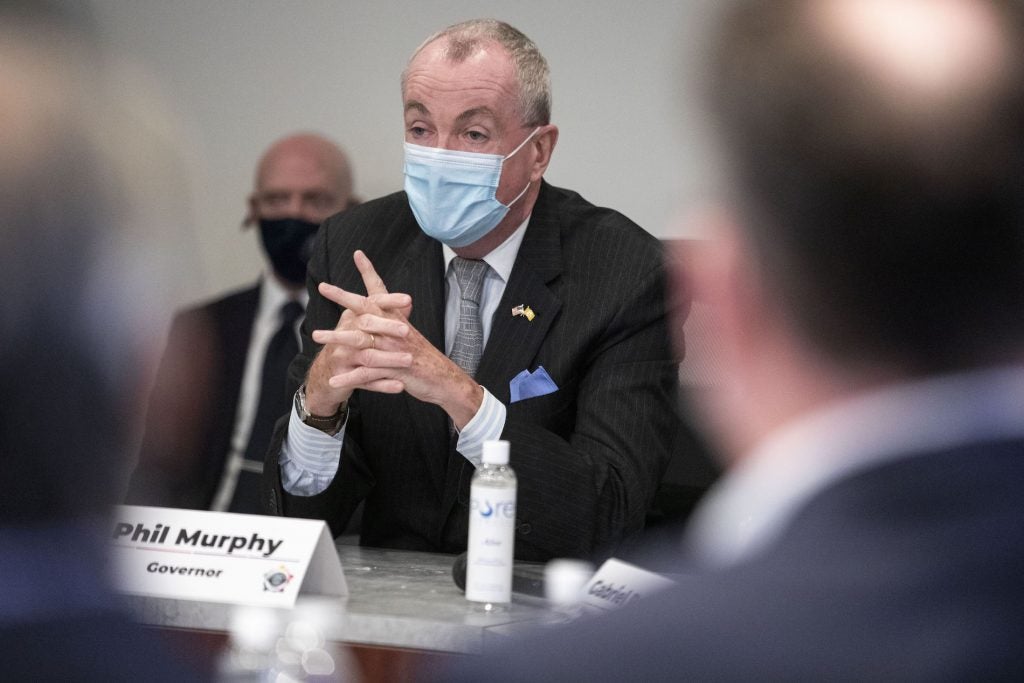
Murphy, who was “impressed” by what the Camden County video showed, said body cameras can be a huge step in rebuilding community trust in law enforcement.
“When used properly, they ensure that there is an impartial record of the facts that can be used, when necessary, in investigations and in courts,” he said.
State Attorney General Gurbir Grewal said the cameras not only provide evidence, but they can also help train officers to respond better in future situations.
“Just as an elite athlete improves by watching game tape,” he said, “police supervisors will now review video with their officers to see what’s working and to see what also can be improved.”
He said everyone — officers and the people they interact with — behave better knowing their actions are being recorded.
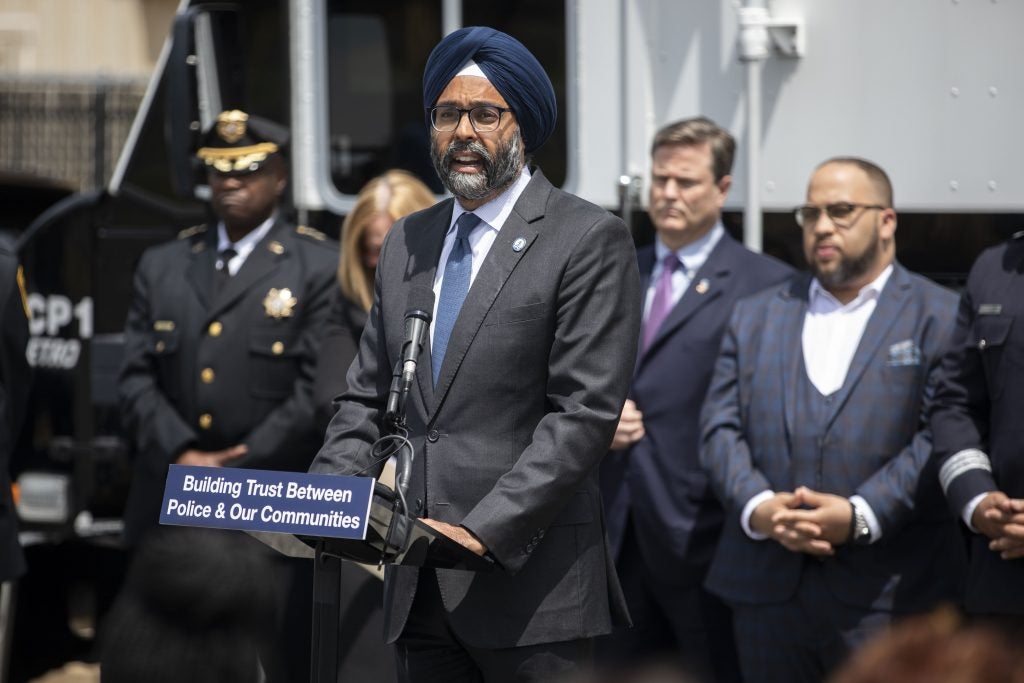
“That’s just a common sense fact that we have seen,” said Grewal, who referred to a 2014 study by the Justice Policy Center with the Urban Institute which found a 59% decline in use-of-force incidents among officers in the Rialto Police Department in California who wore cameras.
However, research on the effectiveness of body cameras in reducing police use-of-force has yielded mixed results. For example, a 2017 study on the Metropolitan Police Department in Washington, D.C. conducted by the city found they mostly had no effect on officers’ use of force or on citizen complaints.
The governor cautioned that body cameras alone are not enough to keep a community safe.
“You know that great phrase, ‘they are necessary, but not sufficient,’” he said. “I think that’s the way we should think about this.”

Get daily updates from WHYY News!
WHYY is your source for fact-based, in-depth journalism and information. As a nonprofit organization, we rely on financial support from readers like you. Please give today.



